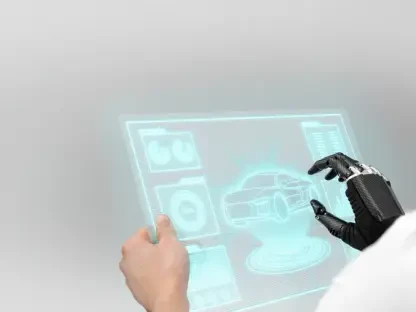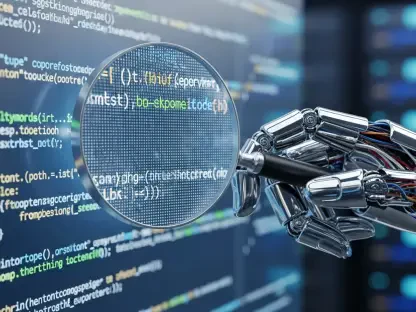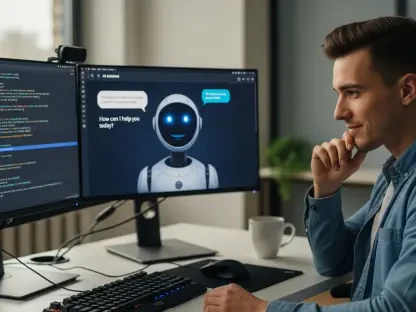The landscape of software development is rapidly changing, with AI-driven coding assistants leading the charge as a transformative force across the industry. These sophisticated tools, resembling junior pair programmers, emerge from extensive developments in large language models (LLMs) and are set to redefine coding practices by offering unparalleled support to developers. Initially, these intelligent assistants appear as promising allies in coding, providing innovative solutions while addressing the evolving needs of software developers. However, as with any evolving technology, developers must exercise patience, akin to mentoring a budding but occasionally distractible intern.
Introduction to AI-Driven Coding Assistants
AI-driven coding assistants represent a significant leap from traditional code completion tools, leveraging LLMs to provide recommendations and code snippets by understanding complex linguistic cues. At the heart of their functionality are algorithms designed to analyze vast datasets of code, facilitating more intuitive code suggestions. Their emergence in the tech ecosystem signifies a shift toward integrating machine learning capabilities into software development workflows, assisting developers in optimizing both productivity and creativity.
Detailed Analysis of Key Features
ChatGPT by OpenAI
OpenAI’s ChatGPT stands out as a benchmark for developers due to its ability to interpret a wide range of prompts and deliver well-rounded assistance. The availability of a macOS app that permits file exchanges and unified diffs points toward an innovative leap from traditional limitations. Yet, the tool faces challenges when dealing with multi-file changes or tasks involving unsupported languages. Its robust model quality enables single-file diffs with ease, although deficiencies remain in executing code externally and maintaining project context when larger changes are required.
GitHub Copilot and Inline Completion
GitHub Copilot demonstrates an inherent strength in providing seamless inline completion within IDEs like Visual Studio and VS Code. Aiding developers by converting comments into precise code snippets, it excels at single-file suggestions. However, its capabilities diminish during cross-file operations and intricate architectural changes. Despite these setbacks, Copilot remains highly accessible, especially for newcomers to AI-assisted coding, thanks to its efficient integration with developer environments.
Cursor’s Diff Workflow
Cursor significantly enhances productivity by supporting diff-based code reviews that impact multiple files at once. As a fork of VS Code, it sacrifices certain debugging capabilities, presenting trade-offs through licensing constraints. Nonetheless, it pioneers improvements in latency and rate handling, despite occasional disruptions that sometimes necessitate creative workarounds. While diff workflows are among its hallmark offerings, the path toward overcoming latency challenges remains ongoing.
Current Trends and Developments
AI coding assistants are continuously evolving with newly introduced features reflecting broader trends in software development. Innovations aim to refine how these tools understand context and enhance user experiences. As development practices become increasingly intricate, these assistants are adapting through updates that prioritize stability, performance, and enhanced memory capabilities to maximize potential benefits for developers.
Real-World Applications
Across diverse industries, AI coding assistants have carved their niche, streamlining workflows for sectors reliant on effective software solutions. Case studies highlight their adoption in fintech, media, and healthcare, areas where automation and precision are paramount. This versatility underscores their capacity to cater to varied requirements, exemplifying palpable improvements in productivity and efficiency.
Challenges Facing AI Coding Assistants
Despite the promise of AI coding assistants, technical and regulatory hurdles pose significant challenges to widespread adoption. Issues such as context awareness and task recall management reveal persistent limitations, with important project context sometimes being inadvertently lost. Furthermore, regulatory concerns around privacy and data security hinder seamless integration. As developers aim to overcome these barriers, innovative approaches and policy adjustments are crucial.
Future Prospects
AI coding assistants are on a trajectory poised for breakthroughs that could redefine how developers interact with code. Advancements in model stability, customizable memory protocols, and open-source contributions depict a future where these tools truly function as full-fledged partners, supporting developers in navigating complex coding landscapes. These anticipated strides promise to enhance stability and elevate the role of AI in coding tasks significantly.
Summation and Verdict
This review offers insights into the current state and potential of AI coding assistants, revealing both their strengths and areas for improvement. Each platform, from ChatGPT’s intuitive prompts to GitHub Copilot’s seamless integration, provides valuable contributions to software development. Yet, the journey to an optimal AI coding assistant remains unfinished, as developers must currently juggle the trade-offs of each offering. The path forward seeks a convergence of stability, control, and precision, ensuring these tools evolve into reliable coding partners.









